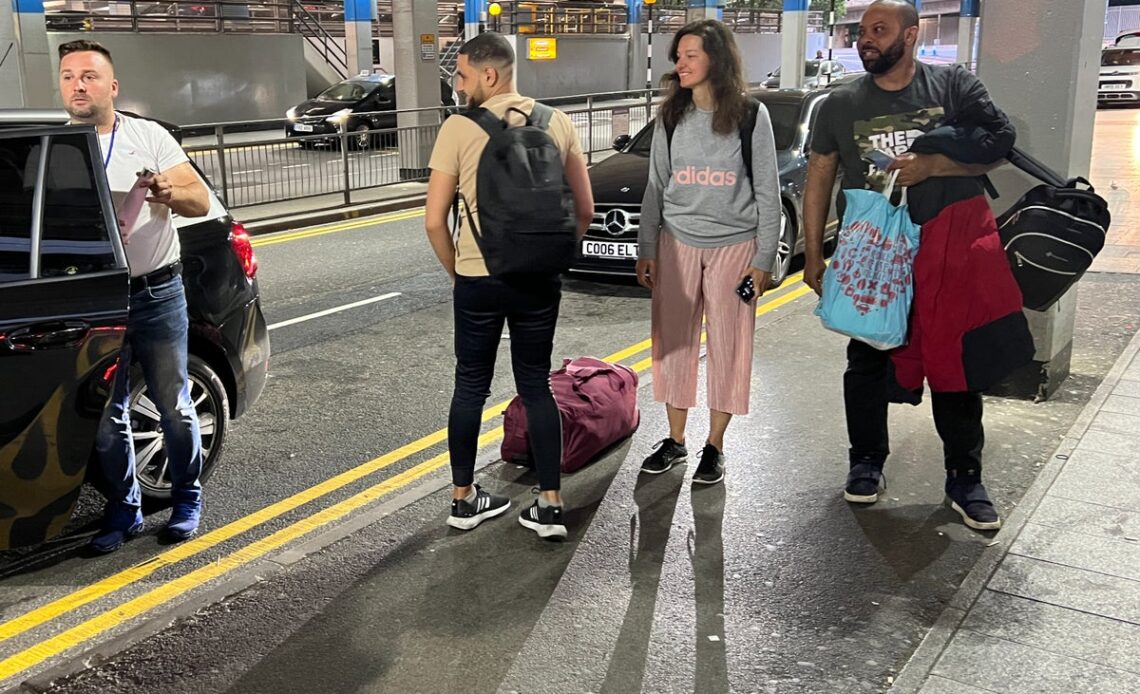Before midsummer dawn on the first day of the biggest rail strike in Britain for three decades, a small crowd of airline passengers gathered at Blackfriars station in central London.
They had planned to catch the 3.40am departure to Gatwick airport – one of very few trains scheduled to be running in the early hours of 21 June. The instruction by the RMT union is not to start work after midnight, but to continue shifts that have begun. So the night shift of signallers and other staff were on duty until the end of their working day.
But the only train that would get them to the Sussex airport in time for their flight was axed because of driver shortage. The 3.40am proved to be a ghost train – the first “on-the-day” cancellation in the great train strike of 2022.
Yet unlike in the national rail strike that stretched through the summer of 1989, it was a simple matter for disappointed rail passengers – bound for Nice, Belfast, Porto, Barcelona and Paris – to agree to summon an Uber. They squeezed into a Citröen Picasso for the one-hour run to Gatwick, splitting the fare and paying £15 each.
“This train was supposed to be there, and that’s a bit annoying, but everyone can manage their way to get to places,” said Joyce Kremer, an advertising art director on her way to the south of France.
“I understand that people are striking and the reasons why.”
Members of the RMT union working for the infrastructure provider Network Rail and 13 train operators voted 8:1 in favour of industrial action in a dispute over pay, jobs and working conditions.
In last-ditch talks, RMT negotiators turned down a 3 per cent no-strings pay rise. UK consumer prices rose by 9 per cent in the year to April – the highest level for 40 years and the highest among the G7 group of leading world economies.
Around 40,000 workers, from Network Rail signallers to train guards, are expected to walk out on the three days of the strike 21, 23 and 25 June.
They are joined on the first day of action by colleagues working for London Underground, likely to lead to a near-total shutdown of the Tube network in the capital.
The transport secretary, Grant Shapps, said the strike is “orchestrated by some of the best paid union barons, representing some of the better paid workers in this country, which will cause misery and chaos to millions of commuters”.
Labour’s Louise Haigh, the shadow transport secretary, warned: “The entire country is about to grind to a halt.”
Yet unlike the long…
Click Here to Read the Full Original Article at The Independent Travel…
